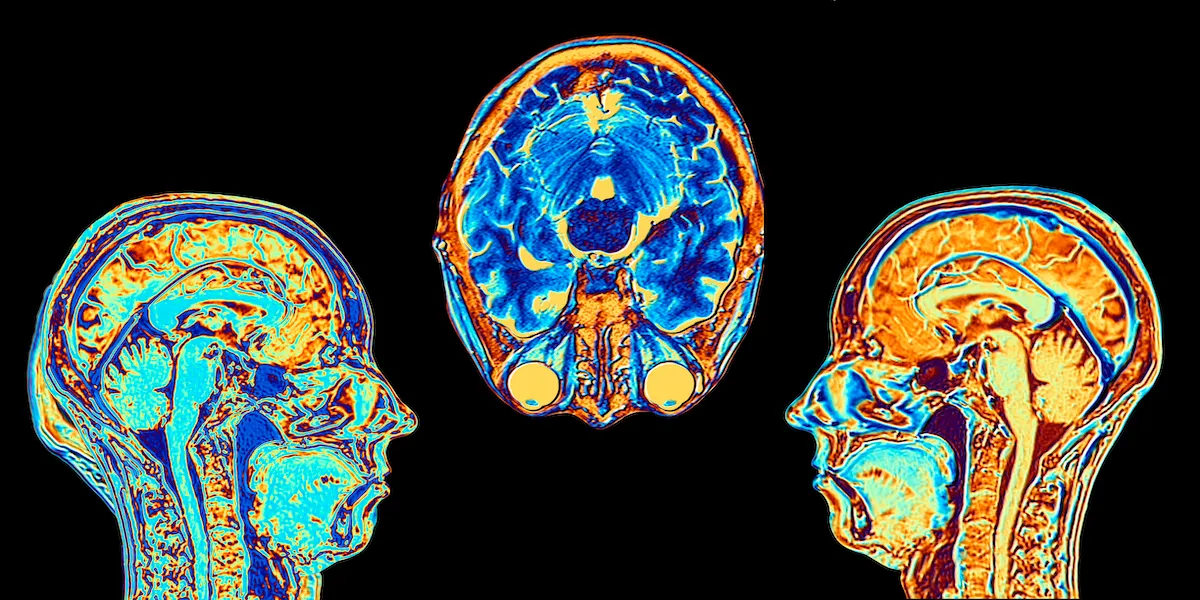Sadness, anger, fear - although they can be painful, negative emotions are an unavoidable part of the human experience. But why do we feel them so keenly and what is the best way to deal with them when they do arise?
We speak to neuroscientist Dean Burnett, author of Emotional Ignorance - Lost and Foundin the Science of Emotion. He tells us about the latest research in this intriguing field, how scientists go about studying it and why we shouldn't be afraid of expressing our emotions.
What do we know about where emotions come from?
The study of emotions is usually labelled affective neuroscience. Scientists have this term called 'affect', which is basically a way of describing the experience of having an emotion. There's a school of thought now that suggests that affect is like the raw building block of emotional experience. Our brains take this affect like a potter would clay and shape it into something which we recognise as an emotion as and when we need it.
This is a constructivist view of emotions. The brain produces an emotional reaction to whatever happens to us and then uses this to say “Right, in this case we need to be experiencing fear”, so the brain generates a fear response. Or, in another case we experience an injustice so we need to generate an anger response.
How can we study emotions?
You can study the neurological activity that's happening in the brain using brain scanners. If someone is saying they're scared, we would see activity in the amygdala, which is one of the emotional hubs in the brain that's involved in a lot of emotional processes.
But if someone is experiencing disgust, by looking at disgusting sight or being told a disgusting story, they usually see increased activity in the insula cortex, which is a different part of the brain.
Now, if you studied someone who was angry, you would see elevated activity in certain regions of the hypothalamus, which is to do with motivation. The anger makes us more motivated, as anyone who's been angry probably realises, so we want to do something about it. But the hypothalamus is not the part of the brain producing anger. So, is this a cause or effect?

A lot of the most influential research was based on observing people's faces and recognising the expression they're showing. If you can recognise this in many cultures it suggests that there is a direct neurological link between what's happening in the brain, an emotion, and what's happening in your face.
I think the more we study, the closer we will get to a set definition of emotions.
Why do we often cry when we experience a negative emotion?
Crying is probably the most obvious example of emotions having a physical component. Everyone recognises it, babies cry, it's a very fundamental reflex. But it's way more complex than you perhaps anticipate. There are three types of tears: basal tears, which just keep your eyes wet on a day-to-day basis; reflex tears, which flush out onion vapour or dust if you get it in your eye; and psycho-emotive tears, which we experience when we have an emotional reaction to something.
Psycho-emotive tears contain things like oxytocin or certain endorphins and hormones which aren't produced by the other types of tears. The emotional reaction we have causes a chemical response in our body. But what's the benefit? Why did we evolve the ability to leak water from our eyes when in an intense emotional state? There are arguments that this is actually a cue for other people around us. Because we are such a social, communicative species sharing our emotional state is a big part of our existence.
So when someone is going through an intense emotional state and they start leaking water from their eyes, that's a sign for those around them to say “Oh, this person is in an extreme emotional state”. They can then either help or join in. If they are happy tears, and you want to share that happiness, you say “Oh, what's going on? Why you so pleased? Can I have some happiness, please?”. And that's a useful emotional trait. But even that doesn't really suggest why we have the chemical differences.
There are some arguments that they might evaporate and then other people around us can sense emotions in the air via the oxytocin and other social hormones and become more emotionally available and then have an emotional connection to you. It's a theory. It's a tricky one to prove conclusively. But they've done studies of people that have inhaled other people's tears and they have had different emotional responses to certain stimuli.
Why do some of us deliberately seek out negative emotional experiences by listening to sad music or watching sad films?
That's something that was confusing to me too. When my father died from COVID and I was struggling with the grief and isolation because of lockdown I was exploring my own emotions and also some of the logjams I had because I wasn't an easy crier before this happened. I'm far more so now because I'm less emotionally ignorant.
I had a head full of confused emotions so I was using sad things as a sort of emotional nicotine patch to make sure I did cry a bit. I'm a big fan of Pixar films and they're very good at doing that. When you're looking for the entertainments which make you sad or make you cry, you're pretty much spoilt for choice, which objectively is sort of counterintuitive because nobody wants to be sad. It's a negative emotion. We try to avoid it.
It’s the same with anger and fear: there are loads entertainments out there which are designed to produce these exact emotional states.

A lot of that is because we are fixated on being happy and we do what we can to make ourselves happier, or at least we avoid stress. So, we avoid negative emotions where we can. But that's not necessarily the best approach when it comes to wellbeing. When you experience a negative emotion it's novel, which your brain likes anyway, but if it's in a safe context that means your brain gets to experience an emotion it doesn't normally experience.
This allows your brain to become better at processing and handling that emotional state for later use. It's basically like taking your mind to the gym. You say “Right, okay. I don't usually get to do fear. Let's watch a scary film to fire up the fear system”. Then the brains goes “Okay, this is how you handle fear, I got some good practice with that”.
If you want to you can leave the cinema or put the book down. You’re in full control. You’re just indulging yourself in this emotional state. People who like listen to sad music or watch sad films are better able to handle sad situations when they happen for real.
Similar data, which I've always liked, is that heavy metal fans, despite what appearances and stereotypes may suggest, tend to be the least angry people. They are the hardest to make angry, and they handle things a lot more passively and calmly because the music they listen to and they love induces anger in them on a regular basis. Their brain has the ability to go “Right, this is supposed to make me angry. I know what anger is like. I'm just going to file that away and not worry about it”.
That's what these entertainments do for us. They give us the ability to indulge in a negative emotion at little or no risk to ourselves. So your brain gets to do the work and reap the benefits with little cost. Essential emotional states are experienced and make our brain just generally better and healthier.
What are some of the key things that you have learned through researching emotions?
I think I've learnt that emotions are really important, way more important than I ever gave them credit for. Even in most scientific fields they are oftentimes just an afterthought, but they affect so much of who we are and what we do. Everything we think, do and feel is influenced or impacted by, or even caused directly by, our emotional state.
There are obviously instances where you should keep them under control or not act on them, but we should avoid bottling up, and I don't just mean the masculine stoic 'must not show emotions thing'. Even the positivity movement that says you must be happy at all times, that you can choose to be happy too.
That's just another way of bottling up. You have a negative emotion but feel that that's wrong and then force yourself to have a different emotion. That's just as unhelpful as saying you must not show emotion. If anything, some research has found that showing a different emotion from the one you're feeling can be even more stressful, and may cause more damage overall, than just not showing anything.
I would say what I've learned most is not to try to suppress emotions. They are valid and they are essential. I think the idea that you have to be rational and logical at all times is not only impracticable, it's incorrect. I would also say it's impossible because emotions influence way too much of our thoughts. They are like the cement which holds the bricks of our mind together and the idea you can just suppress them and that will get rid of them is both wrong and unhelpful.
About our expert, Dean Burnett
Dean is a neuroscientist, author, blogger, occasional comedian and all-round ‘science guy’. He is the author of the the popular Guardian Science blogBrain Flapping(nowBrain Yapping on the Cosmic Shambles Network with accompanying podcast), the bestselling books Emotional Intelligence, The Idiot BrainandThe Happy Brain, and his first book aimed at teens,Why Your Parents Are Driving You Up the Wall and What To Do About It.
Read more about psychology: